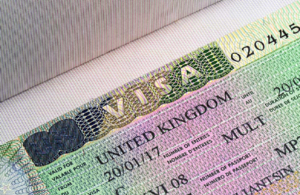Call for evidence: An inspection of UKVI’s ‘Front End Services’
News story
The Independent Chief Inspector invites anyone with knowledge and experience of UKVI’s ‘Front End Services’ to submit their evidence for his forthcoming inspection.

Launching the call for evidence, the Independent Chief Inspector, David Bolt said:
UKVI’s ‘Front End Services’ (FES) are intended to provide individuals wishing to submit a UK visa or citizenship application with a readily-accessible, easy-to-use means of making their application. My inspection will examine whether the FES currently available in the UK and overseas are achieving this and, more broadly, whether they are meeting the needs of applicants.
I am keen to hear from anyone with direct experience of the services provided to applicants by the Home Office and by its commercial partners, including examples of what worked well, what did not work and why, and what improvements you would like to see.
For applications made in the UK and overseas, I am particularly interested in:
- how accessible and easy to use was:
- the online visa application form
- the payment system for the visa application
- the booking system for an appointment to submit biometrics
- the process for submitting documentary evidence
- any additional services offered by UKVI or the commercial partner
- the “customer experience” when attending appointments at a UK or overseas application centre, including the handling of any customer complaints
- the clarity of guidance and instructions provided by the Home Office and by FES providers to assist individuals making an application, and the availability and usefulness of advice and support, including from customer contact centres
- whether applicants needed to seek advice and support from third parties (for example legal advisors, NGOs, MPs) in order to navigate the application process and with what results
I am also particularly interested to hear about the experiences of individuals who are vulnerable and require enhanced support in booking and attending appointments and in submitting applications and whether their needs are being met. Pending the response to this call for evidence and further discussions with the Home Office, the scope of this inspection is not finalised and I would be pleased to receive suggestions about any areas that applicants or stakeholder groups feel should be included in addition to those mentioned above.
Please note: My statutory remit does not extend to investigating or making decisions about individual applications. This remains a Home Office responsibility. But I am able and do take an interest in individual cases to the extent that they illustrate or point to systemic problems. The deadline for contributions is 1st October 2020. If you will have difficulty responding by this date but would like to contribute, please contact the inspection team via email: FES@icibi.gov.uk.
How to respond
Please click here to email your submission to the Chief Inspector by 1st October 2020.
Please note:
In accordance with the General Data Protection Regulations (GDPR) we need your permission to process and retain the information you submit in your submission, by clicking here a consent statement will automatically be added to your email.
However if you are using a non-compatible email client then please send your submission to FES@icibi.gov.uk with ‘ Front End Services evidence submission’ in the subject line and include the following consent statement in the body of your email, ‘I consent to the Independent Chief Inspector of Borders and Immigration retaining and processing the information and data in this email.’
Please do not include this statement if you do not wish to give your consent. The information you submit may be quoted in the final inspection report, but it is the ICIBI’s practice not to name sources and to anonymise as much as possible any examples or case studies.
Published 3 September 2020

